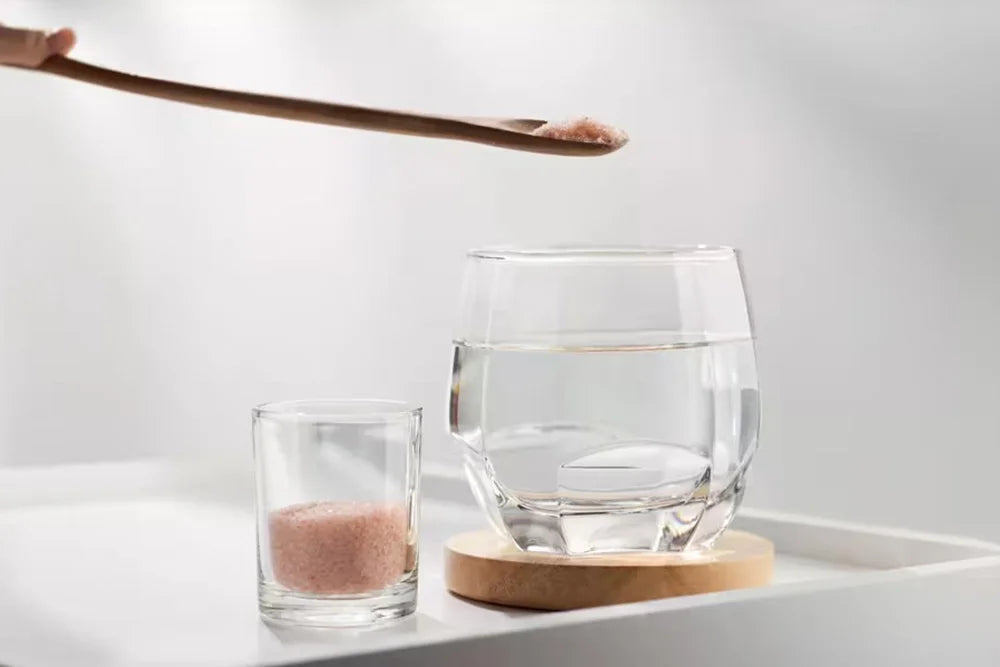
Does Alkaline Water Hydrate You Better?
Walk down any grocery store aisle and you’ll notice shelves filled with bottled alkaline water, often marketed as a superior way to hydrate, boost energy, and balance your body’s pH. But do these claims hold up under scientific scrutiny—or is alkaline water just another wellness trend?
This blog explores what alkaline water is, how hydration works in the body, what the science says about alkaline water’s effectiveness, and whether it truly hydrates you better than regular water.
What is alkaline water?

Alkaline water is water with a pH higher than 7, typically between 8 and 9. It can occur naturally when water passes over mineral-rich rocks, or it can be created artificially using ionizers and filters.
Common claims about alkaline water include:
- Better hydration compared to regular water.
- Detoxification support.
- Neutralizing excess acidity in the body.
- Enhanced athletic performance.
But before we weigh those claims, let’s first understand how hydration actually works.
Alkaline water vs. regular water: what studies show?

Research into the hydration benefits of alkaline water is limited. A few small studies suggest athletes who drank alkaline water experienced slightly better hydration markers, such as lower blood viscosity (meaning their blood flowed more easily). Others reported faster rehydration after intense exercise.
However, most studies are small-scale and short-term, and many find no significant difference between alkaline water and plain filtered water. The placebo effect may also play a role—if people believe they’re drinking something superior, they may perceive themselves as more hydrated. The scientific evidence does not strongly support the claim that alkaline water is dramatically more hydrating than regular water.
Potential health benefits and concerns of alkaline water
While hydration benefits remain debatable, alkaline water may offer other effects:
Possible benefits:
- Acid reflux relief: Some studies have shown that alkaline water (pH 8.8) can deactivate pepsin, an enzyme linked to acid reflux.
- Antioxidant properties: Ionized alkaline water may help reduce oxidative stress, though findings are inconsistent.
- Bone health: Early research suggests that alkaline diets may support bone density, but the direct link to alkaline water remains unclear.
Potential risks:
- Alkalosis (rare): Excessive consumption could raise blood pH, leading to nausea, vomiting, or muscle issues.
- Stomach acidity changes: Your stomach naturally produces acid for digestion; altering this balance may cause discomfort for some people.
- Not for everyone: Individuals with kidney disease or certain health conditions should consult a doctor before consuming alkaline water.
Who might benefit from alkaline water?

- Athletes & active individuals: May notice slight improvements in rehydration after strenuous workouts.
- People with acid reflux: Could benefit from its effect on stomach enzymes.
- Those curious about wellness trends: Safe for most healthy adults in moderation.
For the average person, however, regular filtered or tap water is just as effective for hydration.
Is alkaline water worth it for hydration?
Alkaline water isn’t harmful for most people, and it may offer small benefits in specific circumstances, like after heavy exercise or for acid reflux sufferers. However, there’s little evidence to suggest it hydrates significantly better than plain water. For most people, the key is simply drinking enough water consistently—whether it’s alkaline or not.
FAQs
Can you drink alkaline water every day?
Yes, most people can, but moderation is key. Too much may affect stomach acidity.
Is alkaline water safe for children or pregnant women?
In moderation, it’s generally safe, but plain filtered water is usually recommended.
Does alkaline water help with weight loss?
There’s no strong evidence that alkaline water directly promotes weight loss.
Conclusion
Alkaline water may offer slight advantages in specific scenarios, but for most people, it does not hydrate better than regular clean water. If you enjoy the taste and don’t mind the cost, it’s safe to drink. But don’t feel pressured to make the switch—hydration is about consistency, not pH levels.














